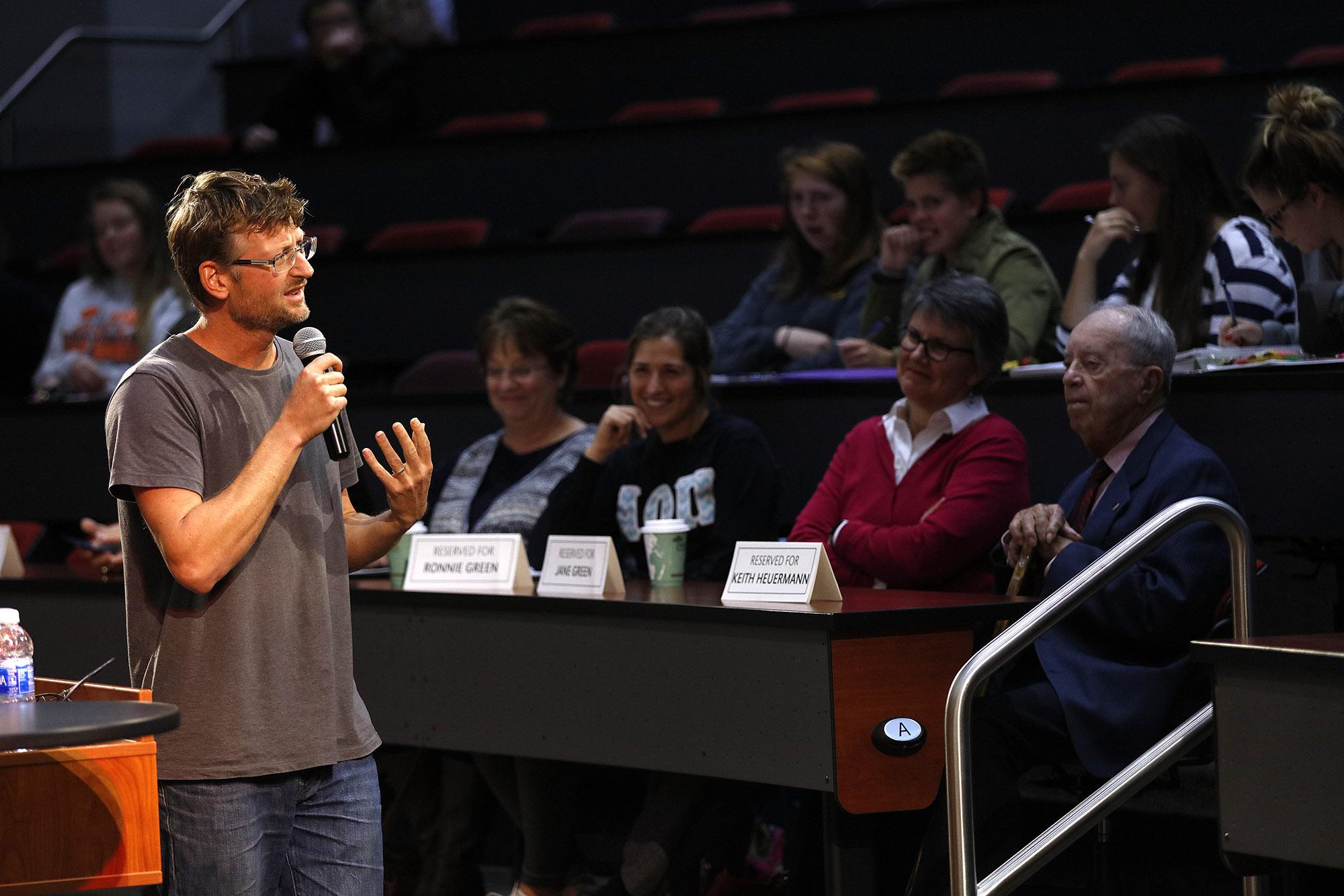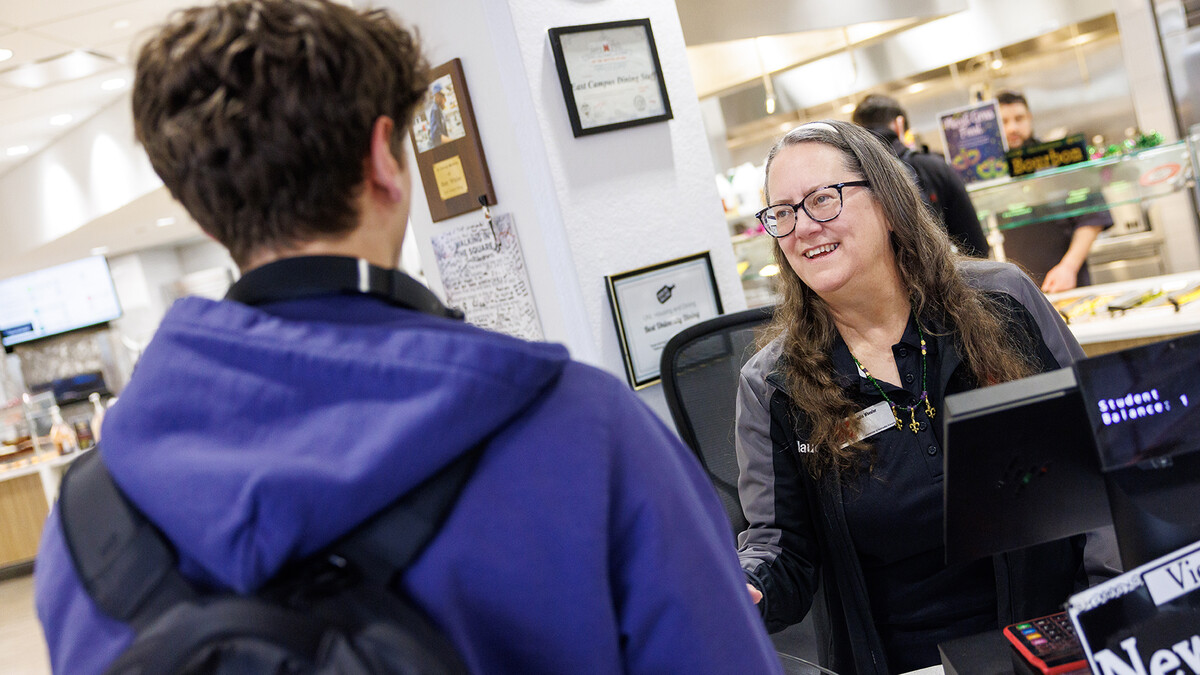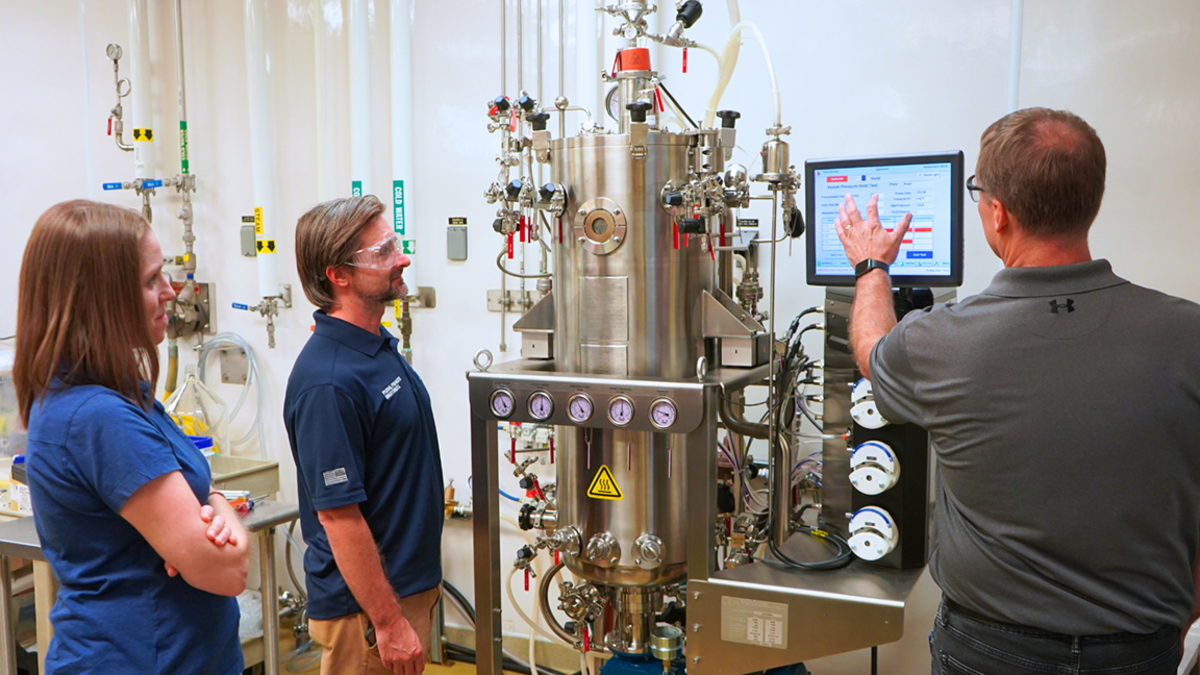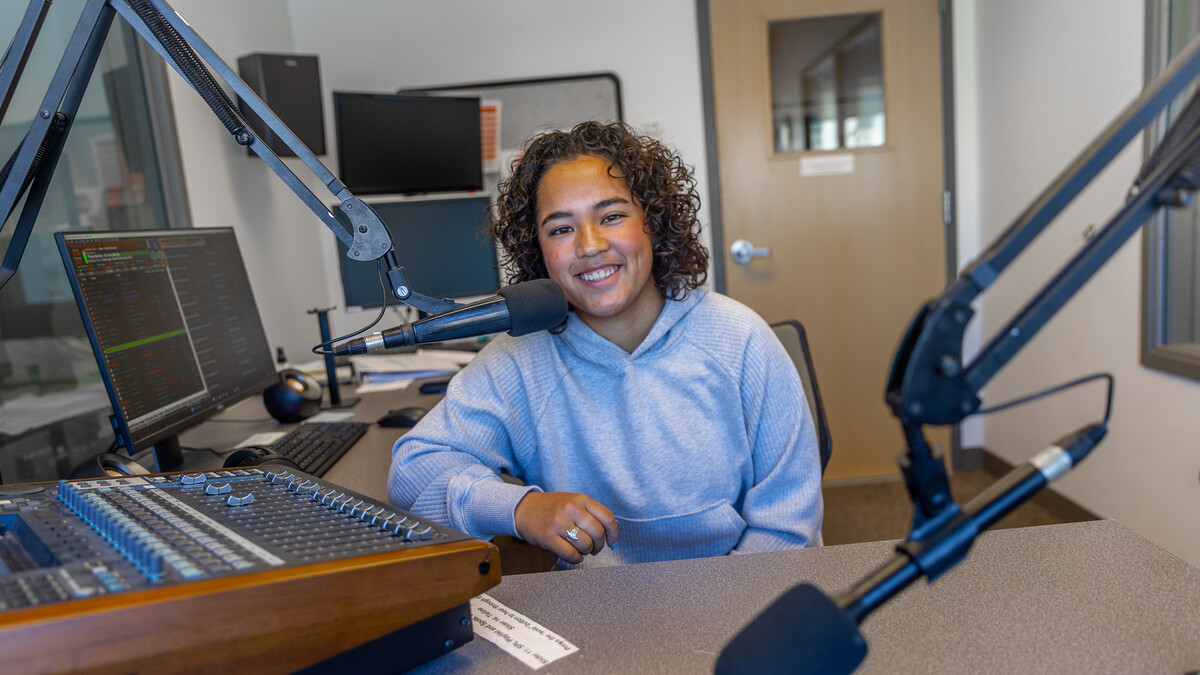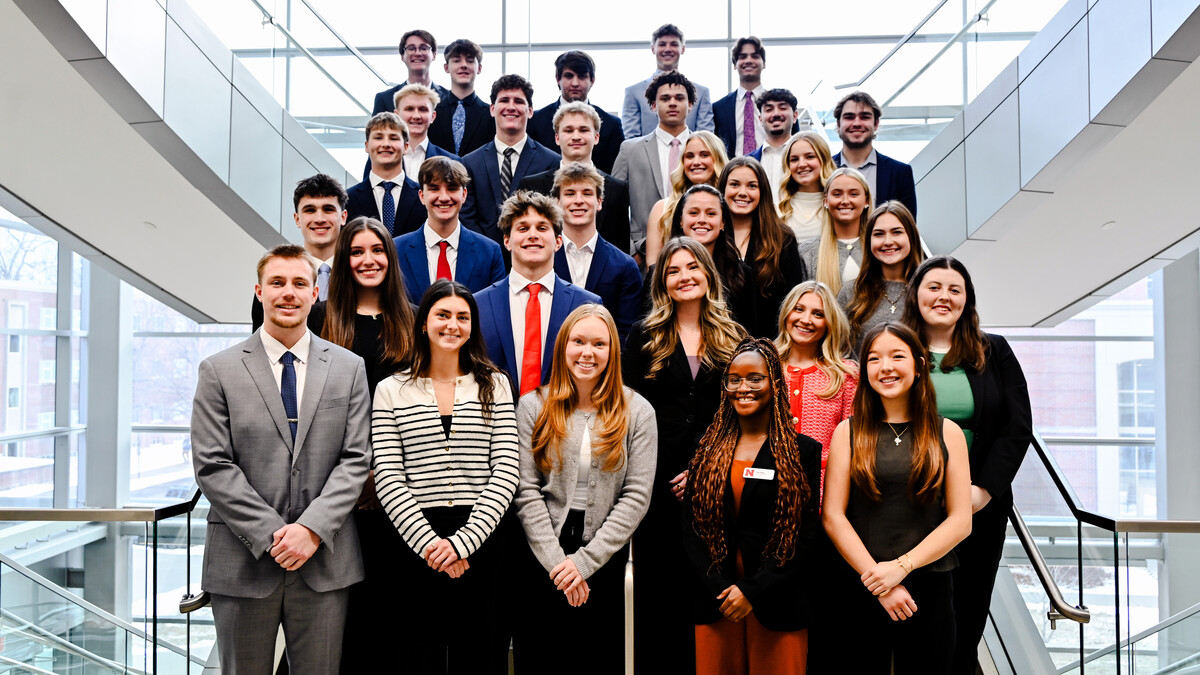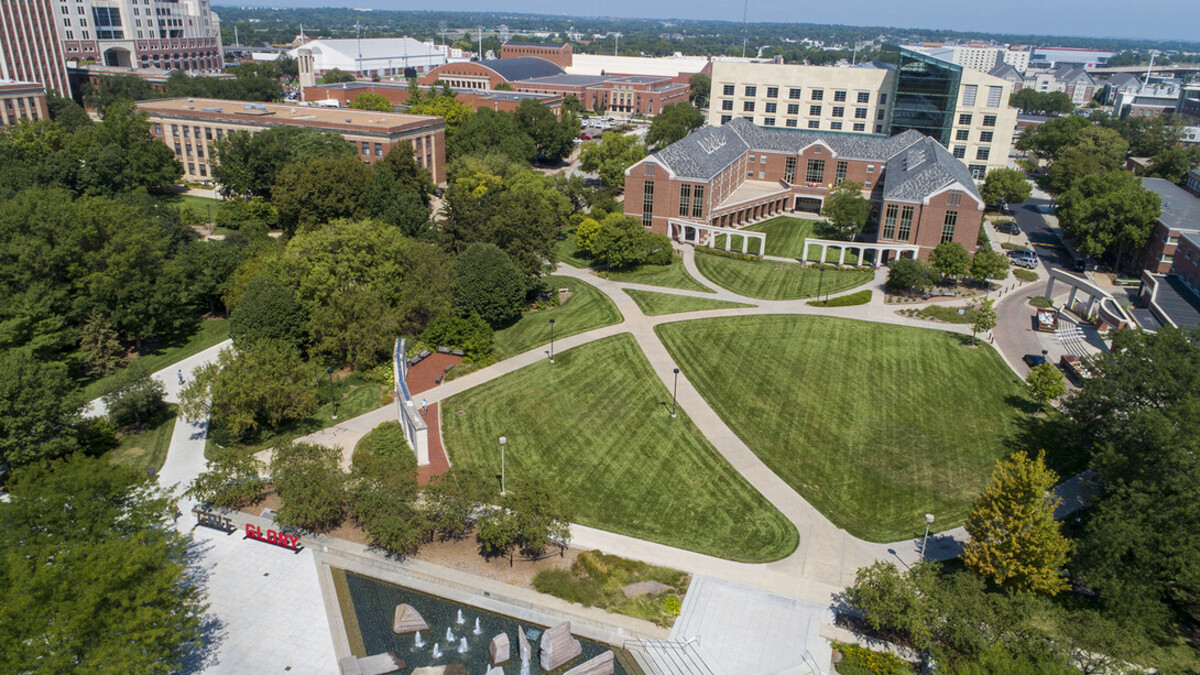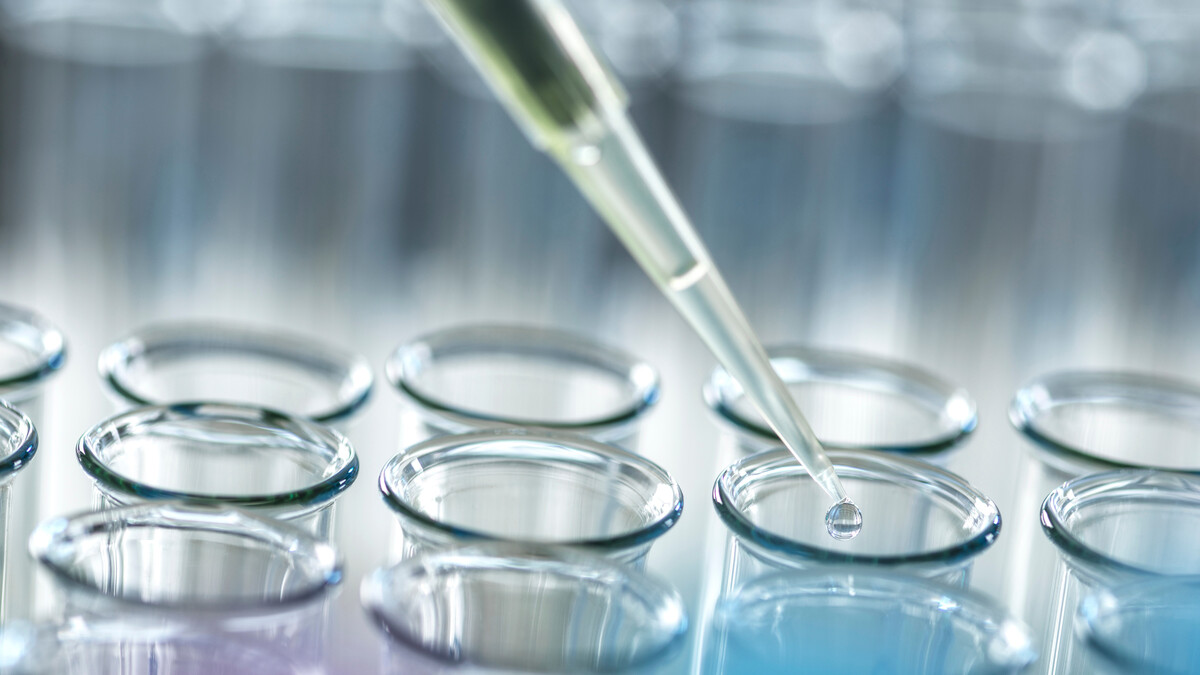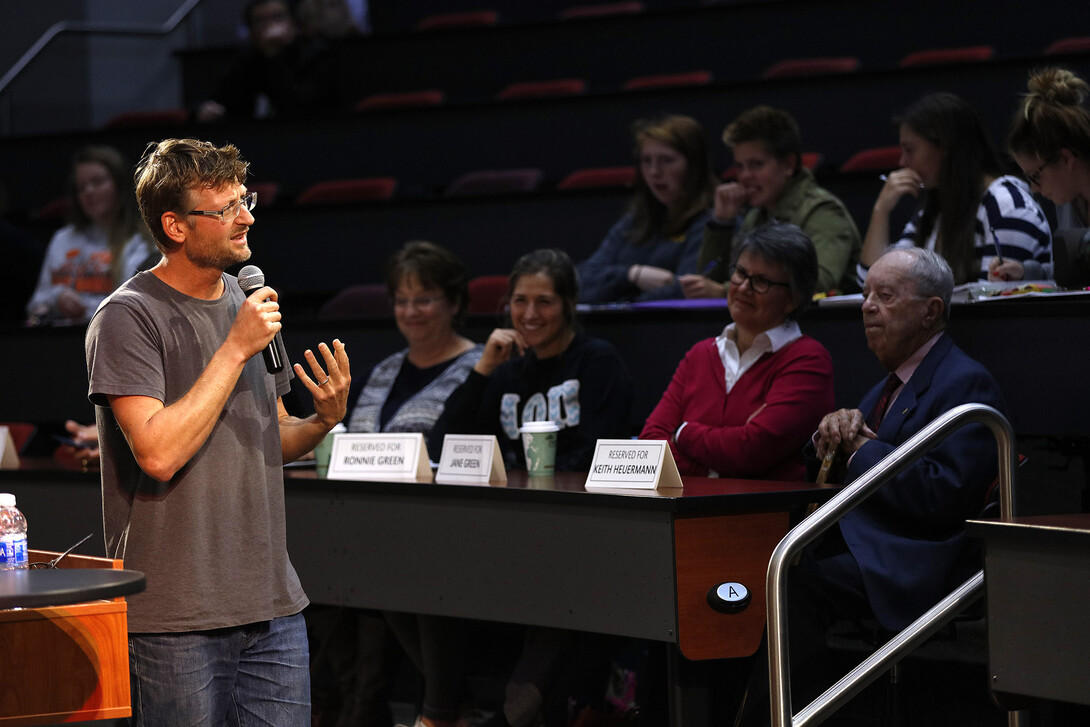
British environmental writer and science advocate Mark Lynas made headlines worldwide in 2013 when he publicly reversed his stance on biotechnology and genetically modified organisms. On Oct. 10, Lynas opened the 2016-17 Heuermann Lecture series by detailing his journey from being an anti-GMO activist to today campaigning around the world for several pro-science causes, including climate change, biotechnology and nuclear power.
“I used to destroy crops,” he said to the crowd at Nebraska Innovation Campus. “I used to destroy them because I believed that there was something fundamentally unnatural and inescapably evil about technology and genetic modification.”
Lynas recalled times in the mid-1990s when he joined his colleagues in a field of maize in the middle of the night, taking machetes to healthy, green crops. On another occasion, he attempted to steal Dolly the sheep, the world’s first cloned mammal, from The Roslin Institute in Scotland. The attempt was unsuccessful, but he was able to export his fears of all things biotechnology to a worldwide audience.
Around that time, Lynas began to focus on another of his passions: climate change. He wanted to humanize the topic and put an emotional storyline behind what had mostly been considered a scientific issue. He traveled the world interacting with people who had been affected first-hand by climate change – people like the Alaskan Eskimos who depend on sea ice to maintain their lifestyle, who saw their villages eroded because of the lack of sea ice. To verify what he had witnessed, he turned to science through peer-reviewed literature.
“There had to be an evidence base that was more compelling than what I could see with my own eyes,” he said.
Becoming engulfed in the scientific community, Lynas began to realize that if he could defend the science behind climate change, he could not deny the science behind GMOs. His scientific inquiry led him to find that nitrogen-efficient crops could lead to less fertilizer use and drought-tolerant crops might lead to less water use. The realizations helped him change his stance on GMOs.
“I had made a huge mistake. From that point on, I decided that I would try to do something to begin to restitute,” he said.
Lynas stopped working with his environmental movement colleagues and began efforts to put a human face on science. He formed relationships with scientists and helped translate their work for general audiences. He traveled the world dispelling cultural myths associated with genetic engineering. In Bangladesh, farmers told him that anti-GMO activists claimed that if the farmers grew GMO crops, their children would be paralyzed.
“As a parent, I realized I had some culpability for food security problems in an African nation where GMOs can’t feed people,” he said. “The issue of GMOs is not just about science, but about righting a profound wrong we’ve perpetrated; it’s about social justice.”
Today Lynas works closely with the Cornell Alliance for Science at Cornell University, supported by the Bill and Melinda Gates Foundation, in promoting agricultural development and reducing poverty and hunger. He is also a visiting research associate at Oxford University’s School of Geography and the Environment, and is an advisory board member of Sense About Science, a science advocacy group in the United Kingdom.
What can be done to get people to stop fearing GMOs? One example Lynas noted is the increasing use of Quick Response (QR) codes on products, which allow consumers to scan the code and visit a website that provides detailed information.
“The solution to the consumer trust level is a radical degree of transparency,” he said.
Heuermann Lectures in the Institute of Agriculture and Natural Resources at UNL are possible through a gift from B. Keith and Norma Heuermann of Phillips. The Heuermanns are longtime university supporters with a strong commitment to Nebraska’s production agriculture, natural resources, rural areas and people. Lectures are streamed live here and air live on campus channel 4. They are archived after the event and later air on NET2 World.
